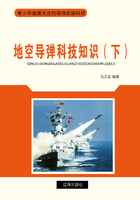William and Lady Hamilton, "we have victualled and watered; and surely watering at the fountain of Arethusa, we must have victory. We shall sail with the first breeze; and be assured I will return either crowned with laurel or covered with cypress." Earl St. Vincent he assured, that if the French were above water he would find them out: he still held his opinion that they were bound for Egypt: "but," said he to the First Lord of the Admiralty, "be they bound to the Antipodes, your lordship may rely that I will not lose a moment in bringing them to action."On the 25th of July he sailed from Syracuse for the Morea. Anxious beyond measure, and irritated that the enemy should so long have eluded him, the tediousness of the nights made him impatient; and the officer of the watch was repeatedly called on to let him know the hour, and convince him, who measured time by his own eagerness, that it was not yet daybreak. The squadron made the Gulf of Coron on the 28th.
Troubridge entered the port, and returned with intelligence that the French fleet had been seen about four weeks before steering to the S.E. from Candia. Nelson then determined immediately to return to Alexandria;and the British fleet accordingly, with every sail set, stood once more for the coast of Egypt. On the 1st of August, about 10 in the morning, they came in sight of Alexandria: the port had been vacant and solitary when they saw it last; it was now crowded with ships; and they perceived with exultation that the tri-coloured flag was flying upon the walls. At four in the afternoon, Captain Hood, in the ZEALOUS, made the signal for the enemy's fleet. For many preceding days Nelson had hardly taken either sleep or food: he now ordered his dinner to be served, while preparations were ****** for battle; and when his officers rose from table, and went to their separate stations, he said to them, "Before this time to-morrow I shall have gained a peerage or Westminster Abbey."The French, steering direct for Candia, had made an angular passage for Alexandria; whereas Nelson, in pursuit of them, made straight for that place, and thus materially shortened the distance. The comparative smallness of his force made it necessary to sail in close order, and it covered a less space than it would have done if the frigates had been with him: the weather also was constantly hazy. These circumstances prevented the English from discovering the enemy on the way to Egypt, though it appeared, upon examining the journals of the French officers taken in the action, that the two fleets must actually have crossed on the night of the 22nd of June. During the return to Syracuse, the chances of falling in with them were become fewer.
Why Buonaparte, having effected his landing, should not have suffered the fleet to return, has never yet been explained. This much is certain, that it was detained by his command, though, with his accustomed falsehood, he accused Admiral Brueys, after that officer's death, of having lingered on the coast contrary to orders. The French fleet arrived at Alexandria on the 1st of July, and Brueys, not being able to enter the port, which time and neglect had ruined, moored his ships in Aboukir Bay, in a strong and compact line of battle; the headmost vessel, according to his own account, being as close as possible to a shoal on the N.W., and the rest of the fleet forming a kind of curve along the line of deep water, so as not to be turned by any means in the S.W. By Buonaparte's desire he had offered a reward of 10,000 livres to any pilot of the country who would carry the squadron in, but none could be found who would venture to take charge of a single vessel drawing more than twenty feet. He had therefore made the best of his situation, and chosen the strongest position which he could possibly take in an open road. The commissary of the fleet said they were moored in such a manner as to bid defiance to a force more than double their own. This presumption could not then be thought unreasonable. Admiral Barrington, when moored in a similar manner off St. Lucia, in the year 1778, beat off the Comte d'Estaign in three several attacks, though his force was inferior by almost one-third to that which assailed it. Here, the advantage in numbers, both in ships, guns, and men, was in favour of the French. They had thirteen ships of the line and four frigates, carrying 1196 guns and 11,230 men. The English had the same number of ships of the line and one fifty-gun ship, carrying 1012 guns and 8068 men. The English ships were all seventy-fours; the French had three eighty-gun ships, and one three-decker of one hundred and twenty.
During the whole pursuit it had been Nelson's practice, whenever circumstances would permit, to have his captains on board the VANGUARD, and explain to them his own ideas of the different and best modes of attack, and such plans as he proposed to execute on falling in with the enemy, whatever their situation might be. There is no possible position, it is said, which he did not take into calculation. His officers were thus fully acquainted with his principles of tactics; and such was his confidence in their abilities that the only thing determined upon, in case they should find the French at anchor, was for the ships to form as most convenient for their mutual support, and to anchor by the stern.















